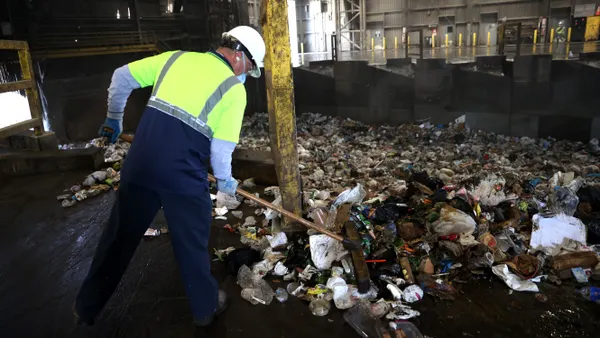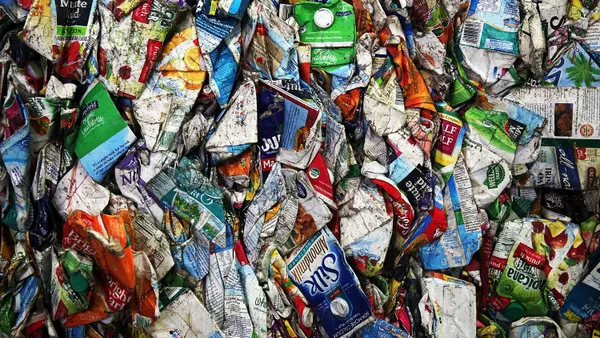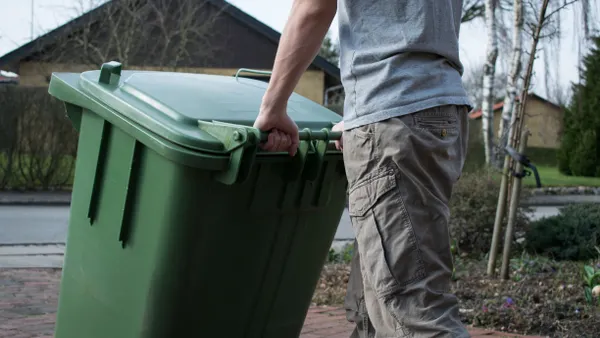Dive Brief:
- A warning period for New York City's commercial organic waste diversion requirement ended on Jan. 19, meaning businesses can now potentially face civil penalties for not following the mandate. The Department of Sanitation's (DSNY) enforcement division will be working with city health inspectors to ensure compliance.
- This rule applies to arenas and stadiums with 15,000 or more seats, food manufacturers with 25,000 sq. ft. or more of space, food wholesalers with 20,000 sq. ft. or more of space and food service establishments in hotels with 150 or more rooms.
- Any business within these categories is now expected to be diverting its food scraps, plant trimmings, food-soiled paper and certified compostable products for separate recycling. They can contract private haulers, transport the material to a processor themselves or set up an on-site processing system (except for food grinders) pending all of the necessary regulatory approvals.
Dive Insight:
This policy originates from a 2013 law signed by former Mayor Michael Bloomberg during the final days of his administration. After determining that adequate processing capacity was available, DSNY began working with private carters, transfer stations and covered businesses to prepare for the rule's full implementation. Businesses had six months to make the necessary arrangements since the rule took effect last summer, and also have the option to report any carters or building managers that aren't handling the material properly. DSNY told Waste Dive that it has yet to receive any complaints.
Capturing more organic waste from the commercial sector is seen as a key part of reaching Mayor Bill de Blasio's 90% diversion rate goal and this rule has provided new business opportunities for many in the region. The city reported that more than 24,000 tons of organic waste were diverted during a five-month "Zero Waste Challenge" last year. Some of the same companies that have been servicing these businesses are also handling residential organics collected by DSNY through a set of $47 million processing contracts. This is part of the city's plans to make organics recycling available to all residents in some form by next year.
These plans may help New York get closer to achieving its "zero waste" goals, but they still won't go as far as the organic waste landfill bans seen in states such as Vermont and Massachusetts. Enacting such a policy would require some form of statewide legislation, though in the meantime DSNY could extend these commercial requirements to some of the city's thousands of restaurants and catering companies. While many of these businesses already divert their organics, participation is far from widespread.
The 2013 law requires DSNY to conduct an annual survey of available regional processing capacity before proposing any additional business categories to include in the requirement. DSNY told Waste Dive that it will be conducting the next regional survey this spring.











